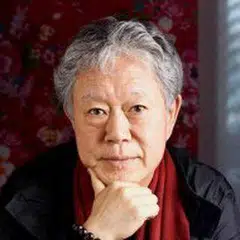Life and life lessons in the old markets of Taiwan
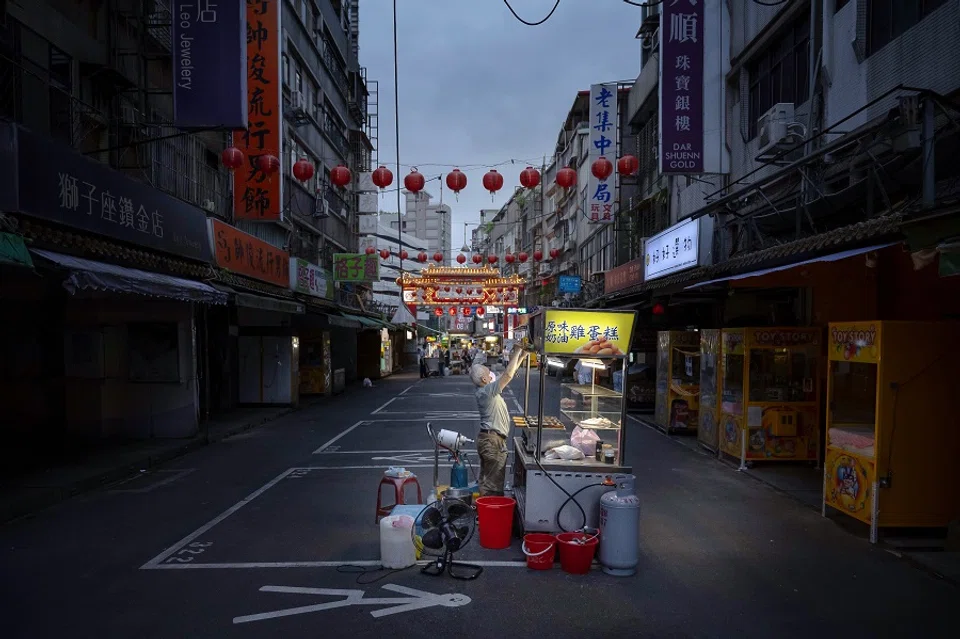
Going to the market with my mother is one of my happiest childhood memories.
We used to stay at Dalongdong (大龙峒), next to the Dalongdong Bao'an Temple. Across the street was the back door of the 44 Kan Site (四十四坎), located on the west side of the Dalongdong Bao'an Temple. The 44 Kan Site consists of 44 commercial shops started by the Tong'an (同安) people.
If I remember correctly, 22 shops sat facing each other on the north and south, separated only by a narrow thoroughfare. The shops sold everything from groceries, food and drink to medicine and apparel, constituting a market all on its own. In fact, it was just like the department stores we see today.
When I was little, Mother often sent me to the 44 Kan Site, sometimes for some wine, sometimes for some oil. In those days, these items were rarely sold in bottles or cans. I would carry a tin can and tell the store owner how much I needed. He would ladle the exact amount and pour it into my can. I didn't even need to pay as he would keep a tab and collect it from Mother.
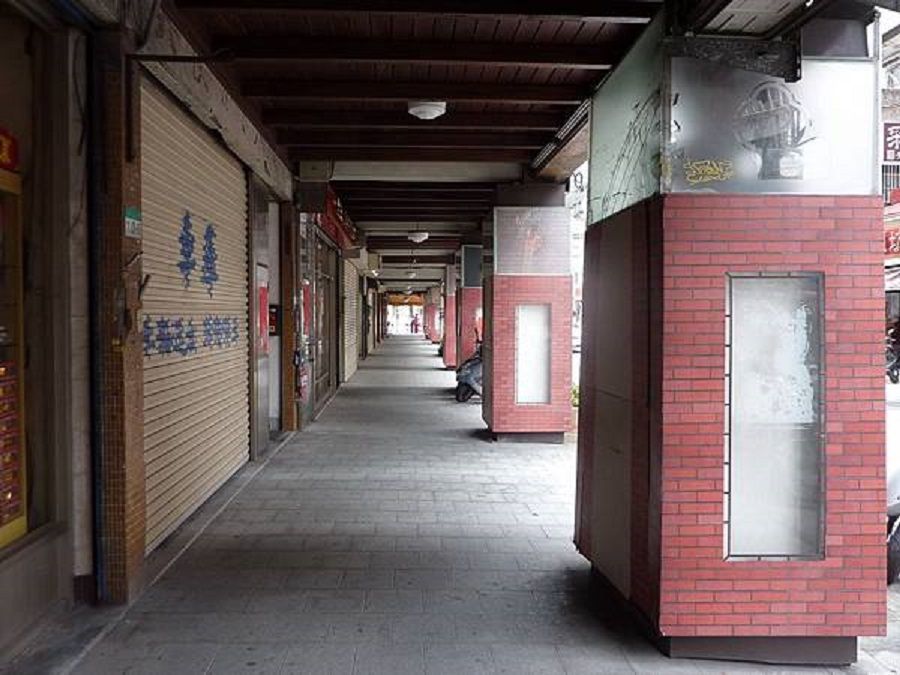
For the ease of doing business and because the rents of these street-facing units were high, the shops were typically just three metres wide. But they were deep, easily measuring about 60 to 70 metres long. Behind each shopfront was the storekeeper's home or a warehouse for goods. These dark interiors seemed cavernous and mysterious.
In the silhouettes of courtyards and alleyways
The south side of my house led to the back door of the 44 Kan Site. Because I didn't want to go the long way round, I would use this back alley whenever Mother sent me on an errand. The long stretch of private quarters behind the shopfronts thus became my shortcut to the 44 Kan Site. I would take the chance to see what the store owners stowed away in dark corners.
I would sometimes chance upon an old lady, naked with sagging breasts, sitting in her dim courtyard after a bath.
Often, a pale light streamed in from the air well. There was a distinctive scent in the air, an amalgam of food, bedding and bodies... or simply a memory engraved on the soul. I would sometimes chance upon an old lady, naked with sagging breasts, sitting in her dim courtyard after a bath. She would either be combing her hair with an oil-dipped wooden comb or removing her foot-binding cloth strip to stare blankly at her distorted little feet.
The blur of people and objects in the fading light and that strange, indescribable scent hovering between desire and decay - until today, whenever I am near the 44 Kan Site, the hue and scent of scenes long past come to mind, even if all that's left is a cold, black memorial tablet marking the heritage site.
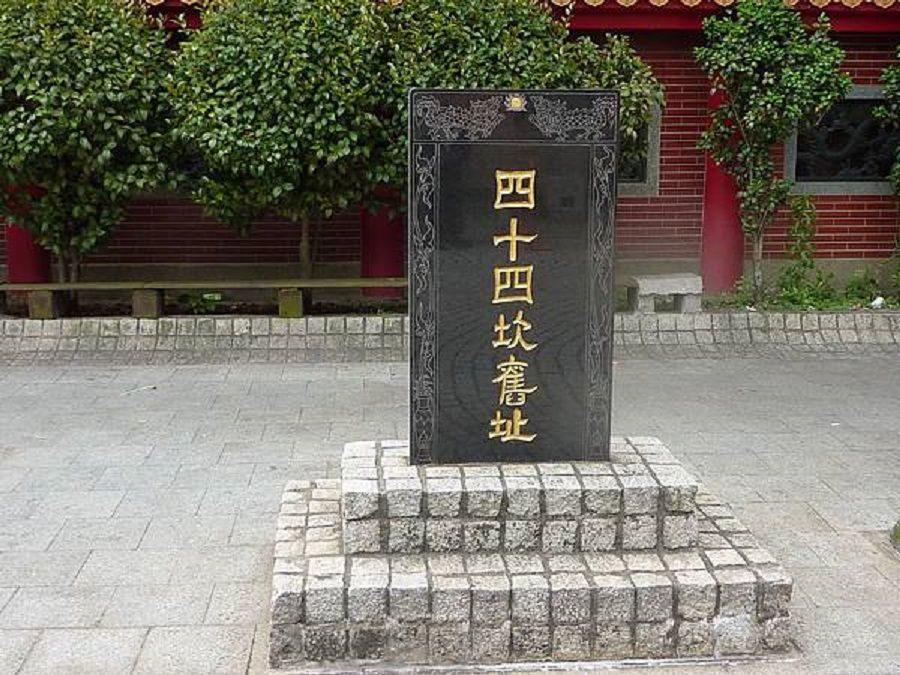
Back then, it seemed that the store owners had a soft spot for little children out running errands. I was often given a bowl of yellow noodles to eat; other times I got a round piece of candy with a sour plum in the middle. As I savoured the candy, hints of sour slowly emanated from the sweet.
The 44 Kan Site was lined with various food stalls. Many of them sold traditional snacks of the Tong'an people: meat soup, mackerel soup, fish balls, braised pork rice, vermicelli soup... There was also a plethora of savoury rice puddings (碗粿), placed daintily on hibiscus leaves or lying in little bowls to be served after being drizzled with brownish-red sweet chilli sauce and soy garlic sauce.
There were grocery shops too but their selection of vegetables and fruits was not very wide so Mother seldom did her grocery shopping there. Instead, she would head north for a bigger market a few streets away. The market is now a multi-storey building called "Dalong Market" (大龙市场).
Its passion and desolation, and the respect and remorse I felt for it - all these I did not learn in school. My teachers have always been the living beings at the market.
My teachers at Dalong Market
In the 1950s, Dalong Market was an incredibly busy place where countless stall owners gathered. The ground was often wet and muddy, as swarms of people pushed their way through the crowded space shoulder to shoulder, yelling and bargaining with the grocers.
One of my deepest childhood memories is of the pungent and complex smells of the market. Closing my eyes, the scent would lead me to a butcher stall with a freshly slaughtered pig. The warm flesh, the heart on the chopping board which seemed to still be beating, the lungs, the liver and the intestines - all these taught me to recognise the flesh. Its passion and desolation, and the respect and remorse I felt for it - all these I did not learn in school. My teachers have always been the living beings at the market.
That summer evening taught me more about what a "soul" is than any religion or philosopher ever could.
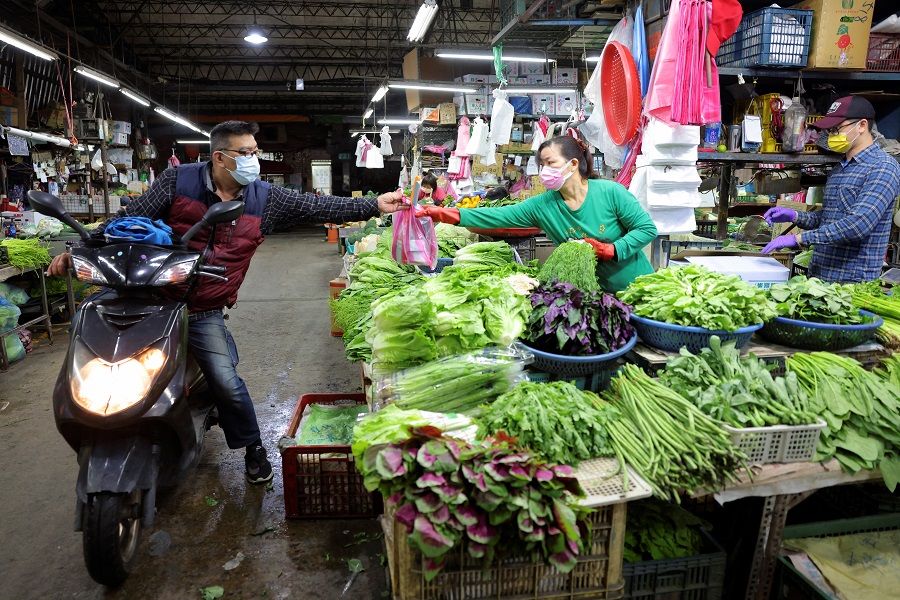
Even after closing time and after the market was hosed down, various scents lingered. Closing my eyes and using just my sense of smell, I could find the stall that sold seafood in the morning. Standing before that empty stall, I inhaled the strong fishy scent of life that refused to go away. That summer evening taught me more about what a "soul" is than any religion or philosopher ever could. I thus believe that a "soul" is a body that disappears but refuses to leave. You can't see it, but you can definitely smell it.
Mother taught me to use my sense of smell to understand the joy and grief of all sentient beings. It is as if she's still holding my hand and guiding me as I walk the earth and through the crowds...
I have also tried walking into the empty market on a summer evening and letting the scents lead me to the stalls where Mother picked out vegetables in the morning - the aroma of basil, ginger, garlic, coriander or the light fragrance of pea sprouts... These are all the mild and soothing scents that do not disturb the calm of the earth.
Mother taught me to use my sense of smell to understand the joy and grief of all sentient beings. It is as if she's still holding my hand and guiding me as I walk the earth and through the crowds, using my nose to sniff out love and hatred and to understand the warmth of a hug, the blood of slaughter and the scents of life and death.
The name "Dalong Market" is derived from the place name "Dalongdong". The Chinese translations of Dalongdong were inconsistent in the early days, and people were either calling it "Dalongtong" (大隆同) or "Dalangbeng" (大浪泵). The latter seems to be nearer to what the natives used to call the place.
Each family had their own chickens and ducks, but it seemed like they never lost their way.
Dalong Market sits on the intersection of Keelung River and Tamsui River. In the 1950s, there were paddy fields and vegetable farms nearby where farmers grew their own fruits and vegetables. And households used to rear chickens, ducks and geese, while some others also reared pigs. There was always an earthen jar for food waste at the door. After I came home from elementary school, I would catch clams from a nearby stream with a bamboo basket, mash them and feed them to the ducks. Mother would feed the chickens in the morning with leftover rice mixed with bran and other feed. And this was how we had an endless supply of chicken eggs and duck eggs for the year and ensured that everyone in our family of eight had an egg to eat. You can already imagine the number of chickens and ducks we kept back then.
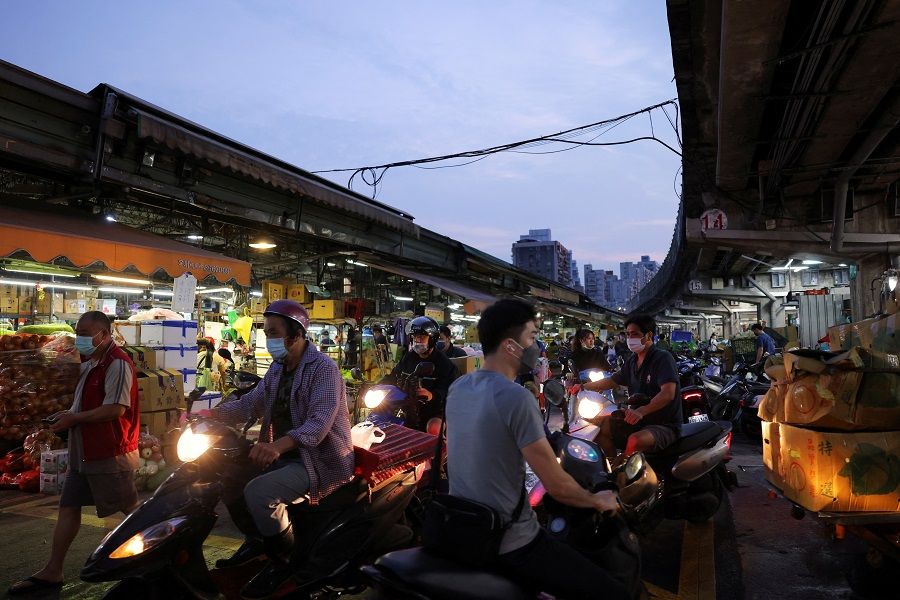
Every day, the chickens and ducks roamed freely and found their own worms to eat. But they would always come home at dusk. Each family had their own chickens and ducks, but it seemed like they never lost their way.
People came to only have knowledge about plants and animals but knowledge is but a concept - it can help you ace your examinations but will never teach you about life.
Gone with the sands of time
I guess it must be difficult for the generation of people who grew up in the city to imagine what it was like back when people in Taipei were farming, rearing their own livestock and working with their hands?
Following the age of industrialisation and commercialisation, Taipei was the first city to urbanise. The rivers became polluted, land values rose and housing speculation was rampant. Farming, craft and people's livestock and vegetable fields were all gone. People came to only have knowledge about plants and animals but knowledge is but a concept - it can help you ace your examinations but will never teach you about life.
Of course, there will always be people who insist, "My life is about McDonald's and KFC. What can you do to me?"
City folk carry themselves with an air of arrogance. They think they are better than everyone else. Indeed, we cannot do anything to them.
I am thankful to have spent my childhood and adolescence in a time when the natural environment of Taiwan has not been destroyed.
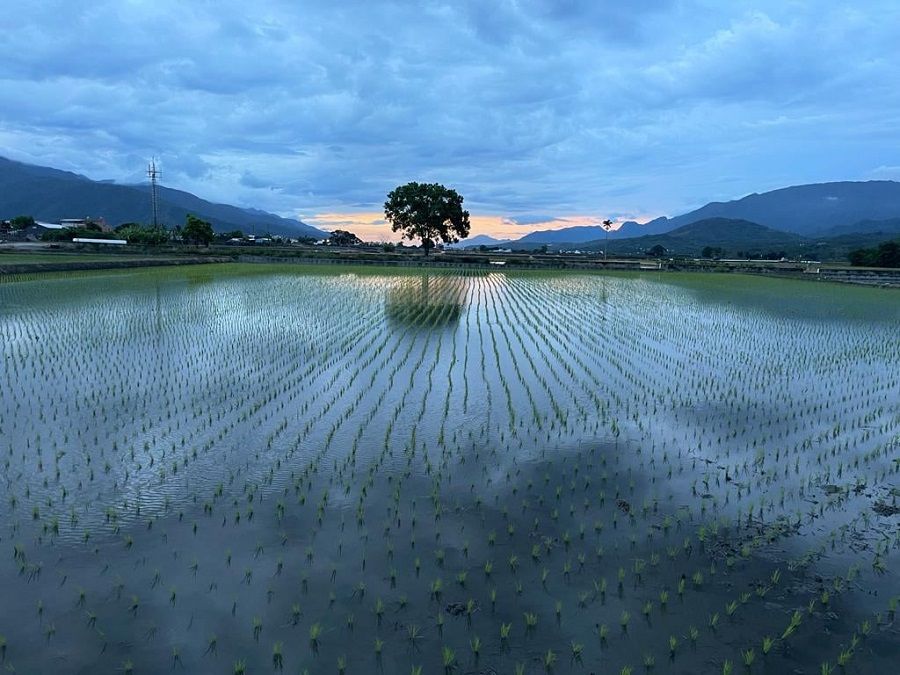
I am fortunate to have gained a new understanding of farming and crafting in eastern Taiwan over the past few years. I know that hand-picked plums and roselles are different from those harvested with clippers. I am also aware of how much the physical and mental state of a whole generation of youths have been damaged by chemically contaminated rice and livestock that's been fed with growth hormones.
I am thankful to have spent my childhood and adolescence in a time when the natural environment of Taiwan has not been destroyed. I grew up eating Mother's home-cooked food until my 20s when I went to study in Europe.
Now, I don't get envious of those who eat at three-Michelin-starred restaurants, although it is quite an experience when I do eat there occasionally. Deep down in my heart, I know I am greatly blessed to have enjoyed Mother's cooking for over 20 years of my life.
This article was first published in Chinese on United Daily News as "五行 九宮 蔬食2".
Related: Taiwanese art historian: The five elements of cooking in the olden days | Taiwanese art historian: My mother waited for her soldier husband to return from war, just like Wang Baochuan | Taiwanese art historian: How should I meet my mother in the afterlife - as a child, an adult or an old man? | Taiwanese art historian: What my father taught me | My childhood days in Xiamen Street, Taiwan: Of invisible warriors, string puppets and spring pancakes
